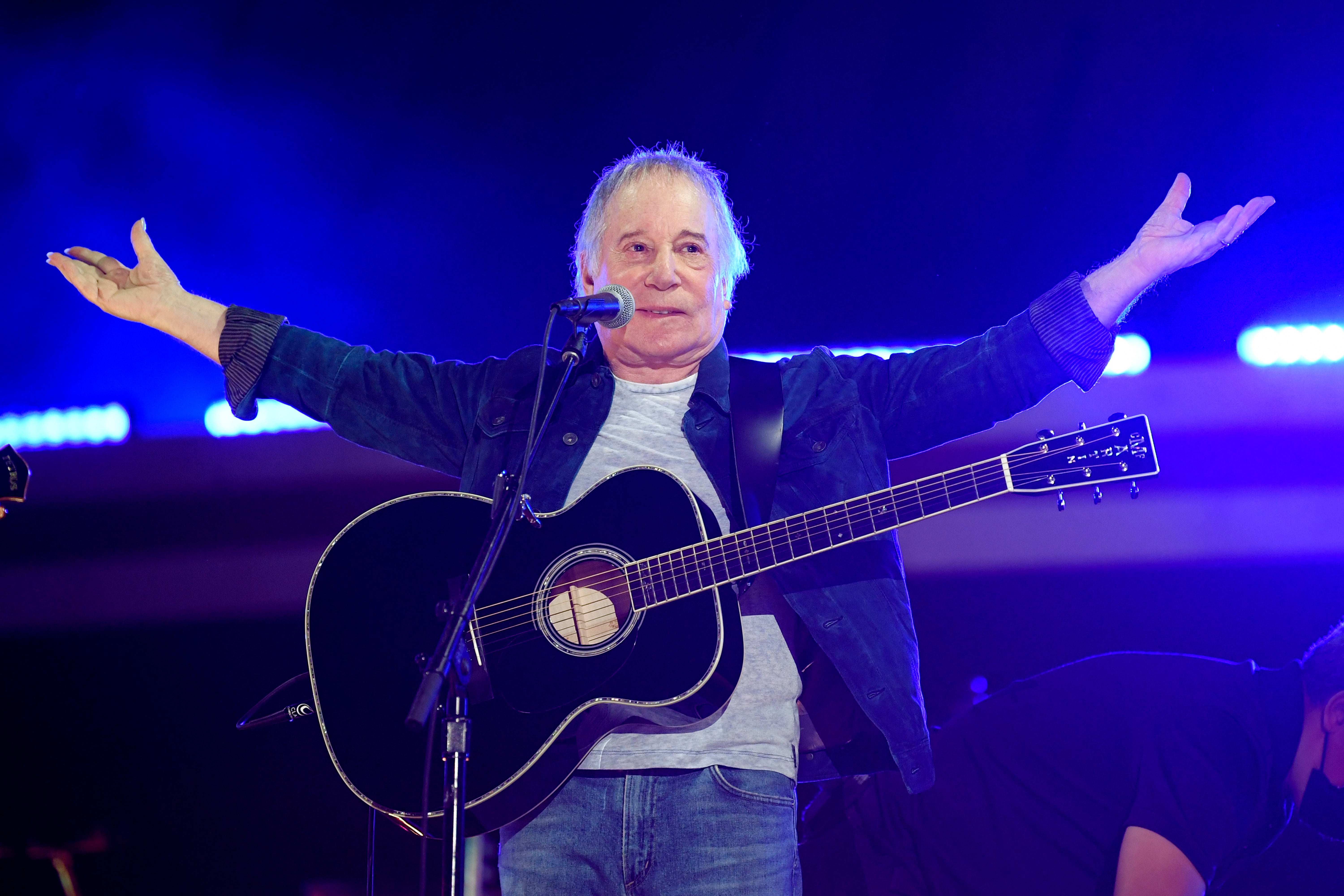Paul Simon admits he’s ‘beginning to’ accept sudden hearing loss
‘You Can Call Me Al’ singer-songwriter, 81, experienced a near-total loss of hearing in one ear in May
Paul Simon has opened up about his mysterious hearing loss, admitting that, while he hasn’t “accepted it entirely”, he’s “beginning to”.
In May, the “You Can Call Me Al” singer-songwriter, 81, revealed that he had suffered a near-total hearing loss in one ear, which has prevented him from touring. At the time, he claimed that doctors had been unable to diagnose the cause of the sudden-onset condition.
Appearing at the Toronto International Film Festival (Tiff) on Sunday (10 September) for the world premiere of In Restless Dreams: The Music of Paul Simon, the “Graceland” singer shared an update about his condition with the press.
“I haven’t accepted it entirely, but I’m beginning to,” Simon said, according to The Times. “I play the guitar every day. It’s the instrument that allows me to express myself creatively. But it’s also where I go for solace. If I’m feeling ... ‘whatever’. So it’s a very crucial thing to me.
“Something happens to you when you have some sort of disability that changes your awareness or changes how you interact with life,” he added.
“Usually, when I finished an album I went out and toured with it, and then I have the opportunity to really investigate the piece. And then it evolves to another standard, and goes further.”
Simon continued: “A week from now I’m going to try and work with two guitarists who will play the parts that I played on the record, and see if I can sing the piece. I’m not sure how I can integrate my voice with the guitars.”

When the former Simon and Garfunkel star first spoke about the “frustrating” condition to The Sunday Times in May, he explained that it happened while he had been recording his latest studio album, Seven Psalms.
“My reaction to that was frustration and annoyance; not quite anger yet, because I thought it would pass, it would repair itself,” Simon said.
Despite the condition having yet subsided, he admitted at the time that he was not entirely disappointed to have left his live performance days behind him, claiming that he had grown tired of playing many of his songs on stage.
“The songs of mine that I don’t want to sing live, I don’t sing them,” he explained. “Sometimes there are songs that I like and then at a certain point in a tour, I’ll say, ‘What the f*** are you doing, Paul?’
“Quite often that would come during [1986 hit song] ‘You Can Call Me Al’. I’d think, what are you doing? You’re like a Paul Simon cover band. You should get off the road, go home.”
Simon rose to fame in the 1960s alongside Art Garfunkel as folk duo Simon and Garfunkel. The pair split up in 1970, though reunited on multiple occasions afterwards. Following the split, Simon enjoyed a successful solo career.
The career-spanning documentary about Simon, directed by Alex Gibney, has no release date, but will premiere in the UK during the BFI London Film Festival.
Join our commenting forum
Join thought-provoking conversations, follow other Independent readers and see their replies
Comments


Bookmark popover
Removed from bookmarks